Exams and university, when should you stop and recharge?
by Natascha Niekamp
I was always a good student. I am responsible, ambitious. I have been good at school.
When I started studying psychology, we were told up from week 1 that it’s going to be incredibly competitive. We heard from tutors in their 2nd and 3rd year that grades quickly became a taboo-topic in their friend groups. They didn’t want to burden their social bonds with the pressure of uni work. Me and my new friends found this weird. We thought “What’s so horrible in talking about grades? Grades don’t define who you are! They are just an opportunity to learn, to thrive, to become better. You’ll always be able to show that you improved when it comes to the next exam or the one after. What’s the big deal?”
We wanted to keep our conversations open and honest. We wanted to keep talking about uni, about grades, about studying.
We didn’t want to censor ourselves. How naïve we were…
Everything changed when we faced our first exam period. I had never encountered the feelings that I was now confronted with. It was so difficult. Some people got sick in the morning before exams. I got into this terrible habit of getting up earlier and earlier every morning to extend the number of hours I would have in my day to study while at the same time studying longer and longer in the evenings. It became an obsession. It wasn’t even about the actual stuff I learned anymore. It was about the hours, the effort, the time I devoted.
It was about being the best, being disciplined, drilling myself.
I remember this one day where I spilled some tea over my laptop. The laptop that contained all my scripts, all my study notes. I was devastated. I called my dad for tec support. Then I called my mum for emotional support. I remember saying to her “I think I might be getting depressed from this. Is this what it should be like?” We spoke for a long time. I took a couple of days off studying after this day, something that I normally never would have allowed myself to do.
I felt incredibly guilty about it, but I needed it.
If there is one thing that I learned from this period of my life, then it is that working until your batteries are empty is not only self-mortification. It is not. even. efficient. You’ll end up having to stop and recharge right from 0%. It will take ages. I know that people recommend to always let your electronic devices go completely discharged until you plug them in. It’s got something to do with the battery life, I think. But we human beings are different. For me at least, it makes a lot more sense to start at 100% in the morning and to only go down to 80, maybe 60, maybe even 50.
But I never want to go back down to zero before I plug myself in.
About me

Hi! My name is Natascha. I work for the University of Oxford Department of Experimental Psychology. I am very passionate about mental health, research and topics of empowerment. In my spare time, I enjoy yoga, meditation, reading, writing and socialising with friends.
I am writing for Anxiety UK because I have found that it helps me reflect on my insights and about what I have learned in the last couple of years. I always had a bit of exam anxiety, but I know that it’s particularly difficult for me to stay calm in extremely competitive environments. I have gotten a lot better at this over the last couple of years, but I am aware that if I don’t reflect on how I feel, I tend to go numb and just push through.
What has helped me most? Giving difficult emotions permission to be felt and dealing with them instead of pushing them away.
If you want to find out more about exam anxiety, Anxiety UK has some great resources:
The views expressed by the contributor are not necessarily those of Anxiety UK, nor can we guarantee the accuracy of the information provided. If you would like to write a blog for AUK please email [email protected] for more information






